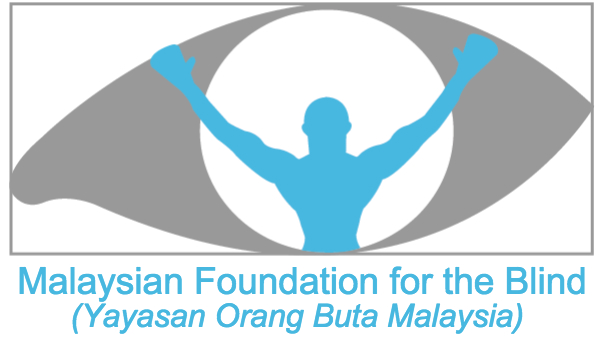The Need for Accessibility Compliance
By Silatul Rahim Bin Dahman,
Founder and CEO | Accessibility And Diversity Specialist,
Malaysian Foundation For The Blind (MFB)
Silatulrahimdahman@gmail.com
As Malaysia implemented the Malaysian disability act on 10th July, 2008, granting the disabled Access is now a right rather than a privilege. The Malaysian Persons with disability act, or (Act 685) has several sections covering all forms of access.
On 10th April, 2010, Malaysia joined many other countries by being a signatory to the Convention on the Rights of the Disable, (CRPD. Thus strengthening the need to ensure that accessibility for the disabled is compliance with the rest of the world.
Meeting standards of accessibility guidelines also extends the services to the reach of more than the disabled. Senior citizens, the poor as well as the less educated will also enjoy such accommodative designs.
Based on the WHO estimates, between 10% to 15% of a country’s population faces a form of disability. Thus, based on Malaysia’s population of 28 million, about 2.8 million people will benefit if accessibility standards are being implemented.
As Accessibility standard is rather new, it is common to see that many people are not aware of such standards. Even the United States started work on their standards only after the 1990s. Therefore, for Malaysia to achieve what the United States and United Kingdom to have achieved twenty years ahead, it will be necessary to have a team that will focus specially on supporting Malaysia to reach the level that has been reached by others.
Just like meeting the standards of ISO, the Accessibility Standards also has several requirements that has to be adhered to. There are checklists to follow as well as audit that have to be done from time-to-time. As Accessibility standards are a living standard, there will be updates as well as the introduction of new ideas that will be introduced.
The Potential Business
As Malaysia will have to abide with the principles and laws that are introduced, Organizations, Business concerns as well as government departments will have to ensure that they meet these standards. Realizing that there are very few people who are specialized in such standards, and that this is a very niche market, we would like to propose that Sarawak Information System take advantage of this area to start a small department to be of service to the Malaysian market.
Why Sarawak Information System (SAINS)?
SAINS has proven that they can be a leader in the market especially based on the following records.
- A leader in the development of an application for the distribution of allowances to the OKU community which is currently used by the Department of OKU.
- SAINS receiving the Malaysia Business Award (MBA for achieving for Industry Merit.
- SAINS has also warn two awards for their Integrated Court system, has won 2 awards, the World Summit Award 2009 for the world’s best e-content product in E-Government & Institutions Category and the MSC Malaysia Asia Pacific ICT Alliance (APICTA) award in 2008 for the Best of E-Government & Services Category.
Expertise
Though this is a rather new field, there are several institutions that have taken these as their specialised areas of expertise. Namely,
- Malaysian Association for the Blind (MAB)
- National Council for the Blind (NCBM)
- Nicholas Home for the Blind
- Accessible Technology
Malaysia has also done its part by organizing the Asia accessibility network. The group has since organized several workshops and a total of 1500 people have gone through the workshop. In fact, this group has also audited the following web sites:
- Kementerian Perpaduan Wanita, Keluarga dan Masyarakat (www.kpwkm.gov.my)
- Air Asia Airlines (www.airasia.com)
- Malaysian Information Network for Disabilities (www.mind.org.my)
- And many more
Potential Services
- Consultation services
- Building and restructuring of web sites
- Auditing and recommendations of meeting accessibility standards
Conclusion
This proposal suggests that Sarawak Information System, being a leader in the field of technology will also lead Malaysia to become an inclusive society where products will meet the standards of universal usability and universal accessibility. It is also suggested that SAINS engage or employ a blind person to lead this new program.
